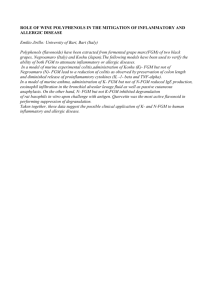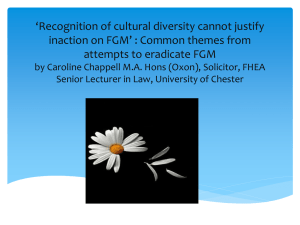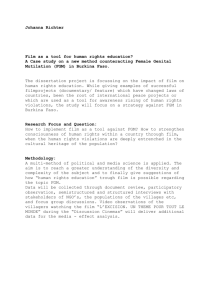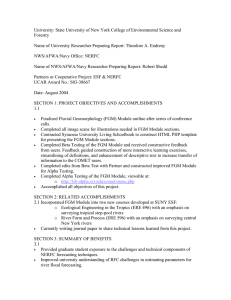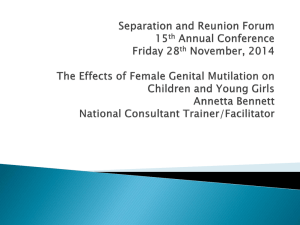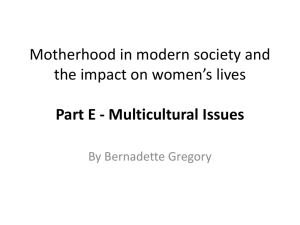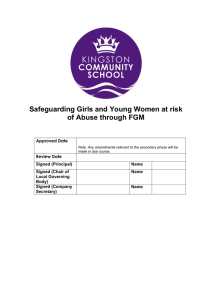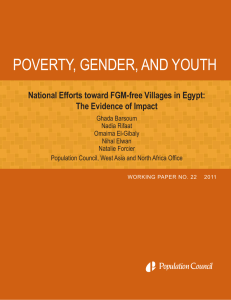Knowing what you know now about FGM/C, what strategies will you
advertisement
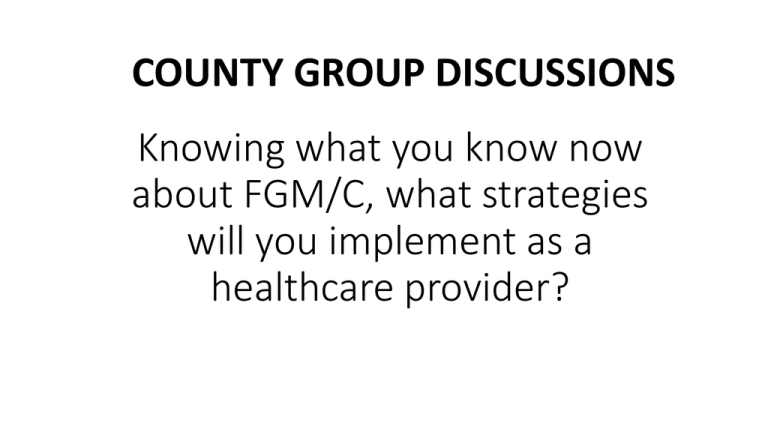
COUNTY GROUP DISCUSSIONS Knowing what you know now about FGM/C, what strategies will you implement as a healthcare provider? ELGEYO MARAKWET • Attend barazas, churches, youth groups to share info about FGM/C to sensitize community • Feedback to CHMT, DHMT and HMT on the health workers training • Counselling and de-infibulation of mothers who attend ANC clinics and address any other complications • Involve county government and other stakeholders e.g. ACCAF, AMPATH, World Vision, etc to train healthworkers on FGM/C abandonment and demedicalization • Keep records for analysis • Involve male partners in sensitization SAMBURU • Partner with project implementation teams – MOH, Ministry of Education, Children’s Office, Judiciary • Use local radio FM to educate people on FGM/C. Positive impact because ladies are now saying NO • Visit secondary schools to form anti-FGC clubs. • Will treat and report on any FGM/C cases • Will continue keeping data on FGM/C – all treatment and reporting NAROK COUNTY • Give feedback to County Health management team to support in campaign against FGM/C and money • Will also liaise with sub county health teams • Will go to health facilities in peripheral areas and give CME to health facilities on FGM and health complications. • Will target MCH staff to screen clients who have undergone FGM for early intervention • Will teach staff in CCC clinics on FGM and HIV/AIDs • Will collaborate with development partners in county e.g. teachers, judiciary, Christian Aid • Will do health education to community health volunteers BARINGO COUNTY • Sensitize county and sub-county health management teams – December 2014 • Sensitive health care workers – January and March 2015 – will lobby county government for resources • Will ask health care workers to sensitize community health workers • Sensitize stakeholders – opinion leaders, chiefs, women leadrs WEST POKOT COUNTY • Provide feedback to CHT and SCHT teams • Sensitize facility in-charges during monthly meetings • Focus stakeholders forum at county and sub-county levels through CHT and SCHT teams • Train health workers on de-infibulation, issues of legal frameworks and demedicalization in hospitals, dispensaries, and health centres • Sensitize risk groups – adolescents through partner support i.e. Amref, World Vision • Train community health volunteers since most FGM cases occur in the community • Continuous advocacy through the local FM – Kalya FM in Kapenguria
